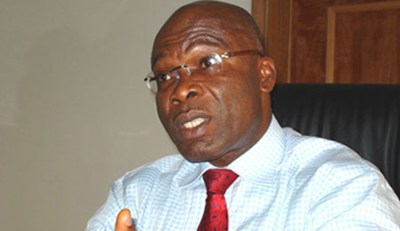Zinox Technologies to Commission Digital Plant by February
Zinox Technologies, manufacturers of Zinox Computer brand, is planning to install one of Africa’s largest Digital Computers Assembling plant in response to the improved power supply in the country.
The design for the digital plant was concluded a few years back, but shipment to Nigeria was stopped due to poor power supply.
Commemorating the 10th anniversary of Zinox Computers, the Managing Director, Mr. Mukoro Emomine revealed that the installation would be concluded in February, 2012 to serve as a major IT manufacturing platform from which the rest of Africa would be supplied.
He also stated that over the last ten years, the company has justified its corporate existence as No.1 ICT Company in sub Saharan African by intervening in critical national and international projects by leading in strategic ICT projects amongst others.
“Yes we agree we are in a tough terrain, but as pioneers we have proven Nigerians can do it”.
“Listing its three delectable products designed to emphatically add value to the technological growth of Nigeria, Emomine said they were the high point of the 10 years celebration.
“The various products as the Zinox Whizkid Professional include, a notebook mini designed for the educational sector with content aimed at eliminating poor performance in WAEC, JAMB, and NECO examinations with commitment to refund candidates who failed.
“The Zinox Legacy, also a notebook designed as a souvenir, wrapped in a national symbol, running on 2.0Ghz, 2MB Ram and 320GB, and the Zinox Prestige, a notebook for professionals running on Core i7 processors, 4 MB Ram, and 500GB hard disk. At affordably priced, these notebooks are designed to give something back to every Nigerian – a gift to Nigerians,” he said.
He also added that the 10th Anniversary signals the formal adoption of a more robust distribution strategy for the Computerise Nigeria Project, a Zinox initiative, to ensure that underserved areas are properly reached.
Mr. Mukoro announced that the Computerise Nigeria Project would operate shops close to rural neighborhoods to make affordable and subsidized systems available to the grassroots, and confirmed that 10 new shops shall be opened before the end of the year.
He noted that Zinox started modestly 10 years ago as manufacturers of PCs but has evolved over time to an integrated solutions company offering a variety of uncommon products that are internationally certified.
“Zinox, the leading ICT innovation house, has kept faith with the Governments and people of Nigeria in the discharge of her responsibilities as a public trust and in keeping pace with the high expectations from ICT stake holders,” he said.
He recalled that at launch in 2001 that Zinox worked very hard to set aside the doubts over quality arising from the wrong impressions conferred by the Made in Nigeria status.
The company said that the fact that it delayed its launch for 4 years in order to acquire the Microsoft WHQL certification underscored the commitment of the Zinox leadership to world-class standards.
Addressing newsmen at a press briefing to mark the anniversary, the Chairman of Zinox Mr. Leo Stan Ekeh said it has been ten tough years of struggles, but said the company has been able to succeed.
”We have gone through the storm of economy, we have passed through three different governments, and we have achieved a lot by adding value to the ICT world, which has no doubt strengthened the realm of knowledge.”
Ekeh however stated the company has not achieved what it set out for, as it expected that about 50 per cent of Nigerians should be computer literate by now, which is not the case.
He called on the federal government to create digital activity, by putting as many states as possible on subsidised wireless rates, and brand its own USBs, so that students can also benefit.
“It’s a knowledge economy, we need to expose our people to the world, they need to see hope, we need to confront the issue of youth unemployment,” he said.
He maintained that if the government is provide subsidized internet access across the country, it would in turn create a remarkable networking opportunities for the poor especially the youths therefore leading to greater digital activities which would no doubt produce employment for the people and opportunities for the country in terms direct foreign investment and income.
Source : ThisDay





